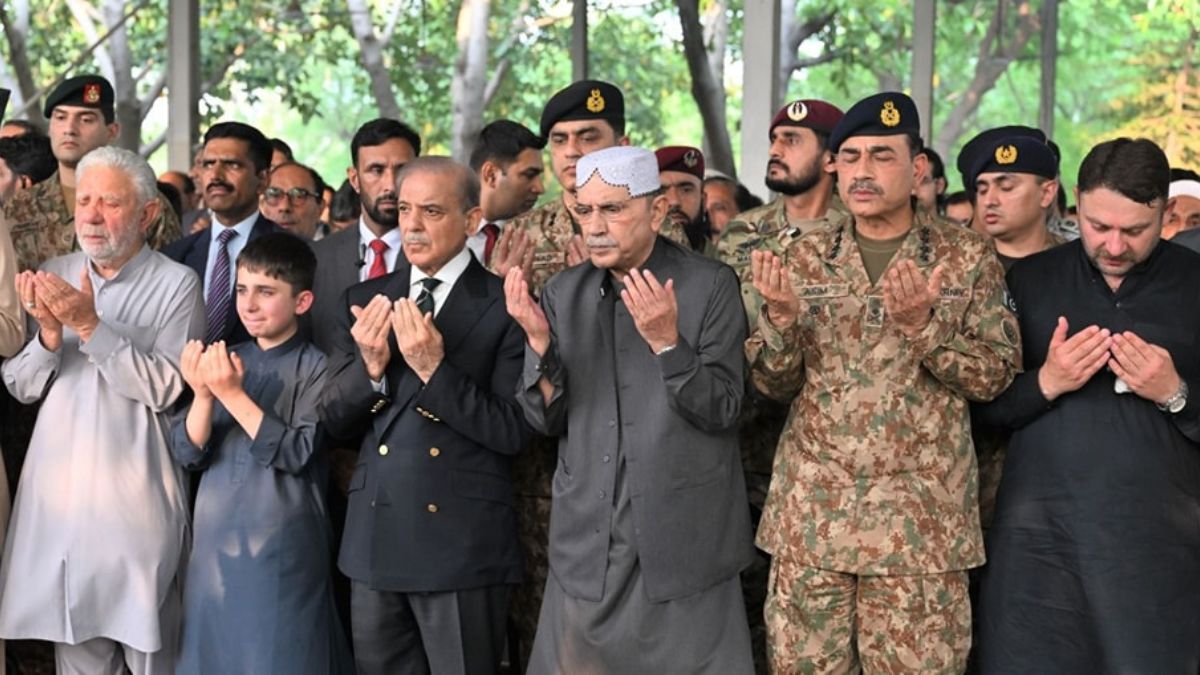Under Operation Sindoor that is now in its third day, India will keep the escalation dominance and maintain that de-escalation rests on Pakistan.
After Pakistan attacked northern and western India with drones and missiles on Thursday, India responded forcefully and the two sides exchanged fire throughout the night. The Pakistani barrage had come after India struck Pakistani air defence systems earlier in the day in response to Pakistani attempted attacks on 15 Indian cities the previous night.
While India started Operation Sindoor with restraint, India has turned up the heat gradually as Pakistan has refused to mend its way.
**Follow our complete coverage of Operation Sindoor and India-Pakistan tensions here**While India targeted only terrorist sites in the early hours of Wednesday, Pakistan sought to attack Indian military and civilian targets on Wednesday night — including the holy city of Amritsar . It appears that Pakistan assessed that India would go for a muted response and opt for de-escalation. That turned out to be a gross miscalculation.
In the morning, India responded by hammering Lahore and destroying the Pakistani Army’s coveted air defence system in the beating heart of Pakistan’s political power — after all Pakistan is Punjab and Punjab is Pakistan.
Impact Shorts
More ShortsIndia’s message is clear that India will keep turning the heat up, offer Pakistan no off-ramp, and force it to de-escalate, says Yusuf Unjhawala, a scholar of geopolitics at the Takshashila Institution.
“From its end, India will not de-escalate. The ball to de-escalate is in Pakistan’s court as it is the country’s actions that have led India to initiate Operation Sindoor. The ideal choice for Pakistan would be to de-escalate after last night’s losses. If Pakistan chooses to respond, India would undo the restraint quicker than expected,” says Unjhawala.
External Affairs Minister S Jaishankar made it clear with his remarks. After a call with his Italian counterpart, Antonio Tajani, he said that India has had a “targeted and measured response” so far but “any escalation will see a strong response”.
India to keep heat on, ball to in Pakistan
Among the many uncertainties of ongoing hostilities, one thing is certain: India will not stand down.
It is understood that India will not just keep the heat on with continued escalation dominance, India will also set the case for the nature of escalation — if escalation is forced by Pakistan’s continued misadventures.
It is understood that one of the fundamental ideas driving the Indian thinking in the ongoing conflict is that the costs that India imposes on Pakistan will be greater than whatever cost Pakistan would try to impose on India. For an unsuccessful strike on Amritsar, India struck Lahore — the seat of Pakistan’s political power. For unsuccessful strikes on Indian military stations, India destroyed Pakistan’s prized China-made HQ-9 air defence system.
As Pakistan’s perpetual war on India is driven by a self-consuming jihadist national ideology, the only way to reduce the frequency of its jihadist misadventures is to impose costs such that misadventures are minimised. To be sure, for an artificial nation created from scratch with the sole idea of opposing India, 100 per cent deterrence is not possible, but imposing severe costs will minimise misadventures and ensure yearslong deterrence.
Unjhawala, the geopolitics scholar at Takshashila, tells Firstpost that it’s incorrect that the Balakot airstrike did not bring any deterrence.
“The Balakot airstrike ensured that Pakistan did not do anything like that for six years when many thought it would attempt something spectacular after Article 370’s abrogation. India is looking to put in place years of deterrence with the current episode as well. India should tell Pakistan that such strikes would be a norm even if five or ten people are killed. India should set a new normal,” says Unjhawala.
The way India struck Pakistan yesterday speaks for itself and should deter its leaders, says Unjhawala.
“If striking Lahore, the heart of the country; Islamabad, the capital; and Rawalpindi, the seat of the almighty military; would not prove to be enough, and Pakistan would still attempt something, Indian response would be a notch higher. India will likely bring the navy into action. So far, India has controlled the escalation ladder and there is no indication that India intends to de-escalate or offer Pakistan a face-saving off-ramp and rightly so,” says Unjhawala.
India gains insights into China’s weapons
The hammering of Pakistan also brings India into Chinese weapons and military systems.
With the destruction of Pakistan’s China-made air defence systems and interception of Chinese missiles and fighter planes , India has also gained insights into Chinese air defence systems and missiles that Pakistan uses. Insights into Chinese systems will improve India’s position regarding China as well.
“With the reports of India taking out air defences, and reportedly its HQ-9 system which is a long-range surface-to-air missile system of China, China will be very concerned that India was able to strike it down because similar missile systems have been deployed on the northern border with us. Also, in today’s press conference, they said that they took out an air defence system in last night’s action. That will be the Chinese system,” says Unjhawala.


)

)
)
)
)
)
)
)
)



